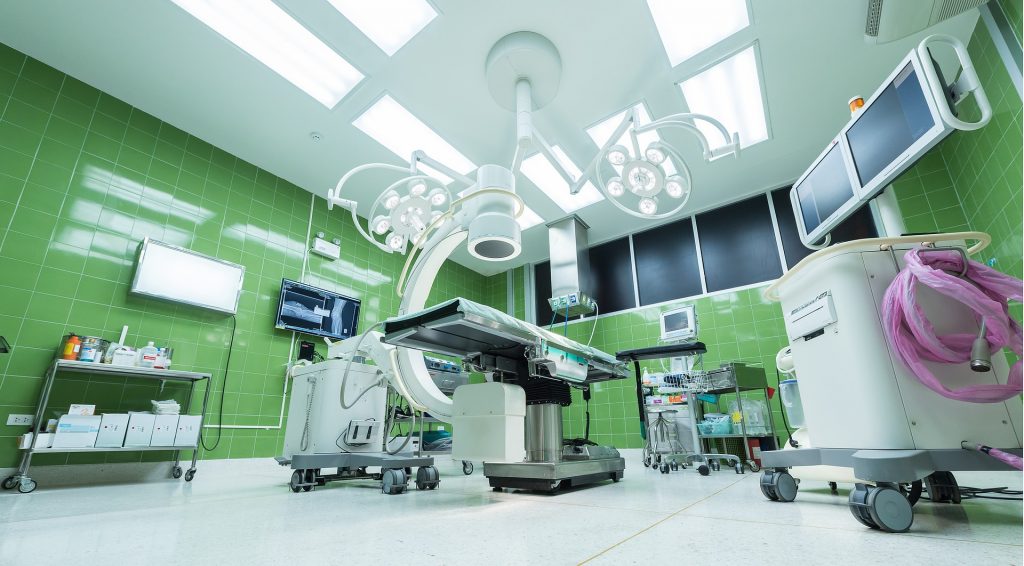OPERATIONS UPDATE: 1/27/26 BWS, Inc. is back to full operations. Please contact us with any questions or concerns about your scheduled pick up - (410) 437-6590 or customercare@bwaste.com
Waste Reduction Tips for Hospitals
Hospitals generate large amounts of waste and should always be striving to lower the amount of waste they produce, medical and otherwise. There are plenty of ways hospitals and other healthcare facilities can better manage their waste via prevention, reduction, and recycling. Much of the waste in hospitals is disposed of improperly, whether by the employees of the hospital or the patients. There are also many waste items in a hospital that can be recycled rather than put into a general waste container. Here are some ways that waste in hospitals can be managed more efficiently: Nonhazardous Waste Though hospitals generate plenty of hazardous waste, much of the waste generated is nonhazardous, with paper being the largest component of the waste stream. Nonhazardous waste in a hospital can be reduced by:
- Using hand dryers rather than paper towels in bathrooms
- Stocking reusable items in the admissions rather than disposable water (pitchers, bed pans)
- Using washable items in patient rooms (gowns, linens)
- Using washable cups, plates, and utensils in the cafeteria
Many of the products in a hospital can be recycled without a great amount of extra effort. Products that can be recycled are cardboard, office paper, aluminum cans, glass bottles, newspapers, plastics, and steel cans used by food service. Not only do these practices lower the amount of waste, but they also save the hospital money in the process. Biohazardous Waste One of the main causes of excess medical waste is the improper disposal of nonhazardous items that are either mistaken for biohazardous waste or are incorrectly disposed of due to carelessness. Keeping biohazardous waste containers strictly in rooms and areas of the hospital where they are necessary is a good way to reduce the amount of waste generated, as employees and patients will be less likely to wrongly dispose of waste that is meant to be recycled or placed in a nonhazardous waste container. In addition, placing nonhazardous waste bins next to bins for biohazardous waste only can reduce the confusion an employee or patient may have when thoughtlessly throwing something away. Ensure all containers are labeled with large symbols and letters to even further avoid these types of mistakes. Hazardous waste must be disposed of and not recycled, so your best bet in reducing this type of waste is to make sure biohazardous waste is being disposed of properly. Here are some examples of biohazardous wastes that it is imperative to dispose of properly in their respective containers:
- Waste containing blood or excrement
- Human specimen cultures
- Human surgery specimens/removed tissues
- Animal surgery specimens, parts, tissues, fluids, or carcasses
- Contaminated sharps (which have their own specific disposal containers)
Biomedical Waste Services proudly provides Maryland and the surrounding areas with regulated waste solutions including, but not limited to: medical waste reduction plans, recycling and reusing programs, and optimization of collection schedules and equipment. If you are concerned about your medical facility’s waste management program and want to better reduce the amount of medical waste you generate, contact our professionals today!
Ready to get started?
We offer a variety of competitively priced service options with no contracts or hidden fees. Request a free quote.
Our Dedication to Providing the Highest Quality Regulated Waste Services
is Shown in What Our Clients Say About Our Work
We provide an outstanding value and service to our regulated waste customers and pride ourselves over the last 50 years on our 100% customer satisfaction with 99% customer retention ratio.
Paul R Miller, D.D.S. and Team
ZytoGen Patient Services
Akbar Masood, D.D.S.
Chris Donaldson
Dharani Jasthi
Tomicka Jackson-George, D.M.D.
Louis Sachs, D.D.S.
Kate Blair English
Dave Ryan
Kerry Owens, Avalon Plastic Surgery
Jamie Fleming, National Spine & Pain Centers
Keith Roberts, Biomatrix Specialty Pharmacy
Mireia Pedragosa Marin, Synergy Research
Rebecca Crouse, Randolph Macon Academy
Melissa C, Patriot Chiropractic
Dr. Rosario Ignacio
Dr. Thomas Lutz, Odenton Family Dentistry
Dr. Louis Sachs, DDS
Eric B.
Brenda Shah
Stay connected - Be the first to know!
Get BWS news and promotions straight to your inbox
Don't worry. We won't sell your information!





